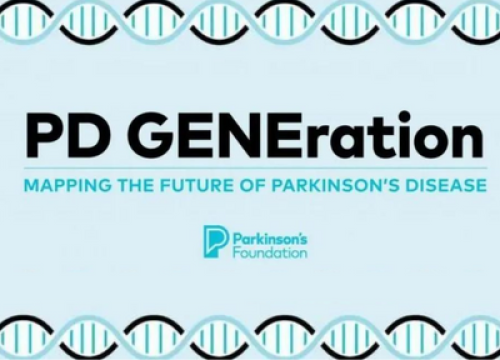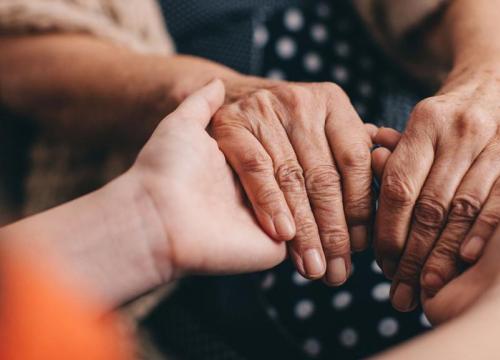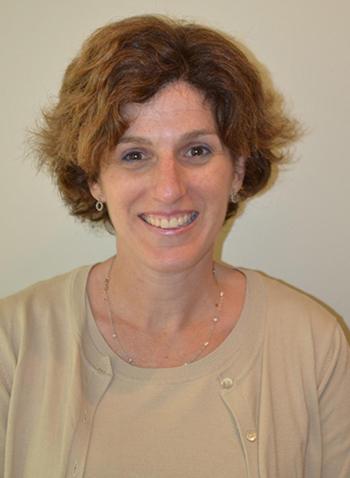Parkinson’s disease (PD) is a family affair: everyone in your family is affected. As a parent of a young child or teen, it is important to consider how PD might affect your children and what can be done to continue to live a full family life with PD. A parent’s illness can present challenges for a family, but it can also provide opportunities for children to grow in ways they may never have experienced without the health issue. The good news is that children often adjust well to a loved one’s diagnosis of PD. With support, they not only adjust but also thrive and can become more self-sufficient, confident and independent.
As symptoms of PD vary for each person, so do the emotions of each child. Common emotions include:
- Shame or self-consciousness about the unusual presentation of PD, especially as a result of reactions by friends or strangers.
- Anxiety about the stress in the parent’s marital relationship caused by PD. Children may sense tension between parents due to the diagnosis and/or the symptoms of PD.
- Sadness, fear, anger and grief regarding the changes and losses of parent experiences or limitations of future experiences.
- Loneliness as the healthy parent is more focused on and spends more time with the person with Parkinson’s.
- Worry about their risk of developing PD themselves; worry that parents feel guilty about the impact of PD on the family, financial worry if family income has changed due to working less or disability pension; worry about the impact of PD on their own future aspirations and decisions.
- Feeling overwhelmed by caregiving responsibilities.
- Frustration with activity restrictions including finding it harder to socialize as they do not want to bring friends home or feel bad about going out.
Research-Based Recommendations
Research into the impact of PD on children is still new, but most children report that they have someone to talk to about their feelings. We have also learned that a child’s outlook was strongly tied to that of his/her parent—if a parent was hopeful, often the child was too.
Share the diagnosis
Your instinct may be to hold back sharing information about PD as you fear it may create worry for your children. However, regardless of the age of your children, consider telling them you have Parkinson’s. Many children who have a parent with PD said that they did not have enough information and that a better understanding of PD would help them feel more secure. Children often imagine much worse things than the truth. Explain Parkinson’s to them, as well as your best understanding of what might happen. Let children know that PD is not fatal, that they are not responsible for it and it is not contagious. Remember to use age-appropriate language. A better understanding of the condition can actually lead to less distress and allow them to feel more secure.
This is especially important with adolescents, who have access to a lot of information via the internet. This can be constructive if what they find helps them cope, but it can be devastating if the information is misunderstood. Consider asking your teen what they know about PD and where they found their information. Ask if they plan to get more information, and from where. You might want to go online together to sites that you know are reliable, like Parkinson.org, rather than simply googling “Parkinson’s.”
Privacy for your child/teen and for you. Your children may not want to talk to you about PD. This is okay, but it is important that they have someone to talk to, whether it is another relative, friend, parent of a friend, teacher, coach, clergy or other person in their lives. You may not want your diagnosis or disease process to be shared with the entire community. To meet your needs for privacy and your child/teenager’s need for support, discuss what information he/she can share and with whom.
What You Can Do to Help Children Adjust to PD
Share with your children’s school about changes in your home if at all possible. The staff at the school, along with sports coaches or leaders of other extracurricular activities, can be your allies in watching over your children’s emotional health and looking out for signs of distress. Sharing accurate PD information with the other adults in their lives will help ensure that your attitude and philosophies are always communicated in a similar way.
Establish family meetings to create opportunities to regularly address issues and worries, along with what is working well. You may use one of the books about Parkinson’s written for children as a jumping off point for the discussion. Below you’ll find a list of a few of these books for reference. As PD is a progressive condition and will change over time, new questions may come up and need to be addressed. Plan a fun activity following a “PD” talk.
Maintain family life, while remaining flexible with the changes that occur. Encourage and reassure your kids to continue their involvement in favorite activities, interests and hobbies. They should have fun and live their “normal” lives as much as possible. This is important for their overall wellbeing.
Help your children find peer support. They are not the only ones with parents with PD. If you are in a Young Onset PD support group, ask other members if they have children and if they might want to arrange an activity where children could meet or connect anonymously online. You could also ask members of your health care team (neurologist, social worker, nurse) to link your children with others in a similar situation.
Bring children to a neurology appointment so they can learn about PD. If they are interested, you can talk more about research into new treatments and with specialists who are available to help.
Empower children by helping them organize a PD fundraiser or raise PD awareness. It is something they can do to help.
Demonstrate a positive attitude. Children learn a lot about coping from their parents. Model healthy coping by sharing your honest feelings appropriately as well as using strategies to cope like exercise and connecting with friends. Instill hope by reminding them that there are teams of specialists and researchers working on PD treatments and symptom management.
Final Thoughts
It is vital for children to continue to see their parent with PD as a parent first and foremost, with the same expectations and approaches to parenting, enforcing the same discipline and boundaries. Stability and consistency will create a sense of security for children.
Children, like adults, may have to grieve changes in their life and ongoing losses. They should be given permission to do so. Your children might have to work through their sadness before they can adjust to a new reality.
You are the expert on your children. If you sense that something is wrong, you are probably right. Keep in mind that childhood and teenage years are times of social and emotional development and stressors, and remember their distress may have nothing to do with PD. Consider counseling to meet their needs.
Parkinson’s Books for Kids
The following books were written to facilitate discussion with children about Parkinson’s disease. The books offer age-appropriate information about PD and perspectives to help children and teens better understand important issues in the PD world. This is not a comprehensive list of available titles, but it’s a great place to start. All of the books below are available on Amazon.com and other online retailers.
- I’ll Hold Your Hand, So You Won’t Fall: A Child’s Guide to Parkinson’s Disease by Rasheda Ali, with a foreward by Muhammad Ali
- Carina and Her Care Partner Gramma by Kirk Hall
- Carson and His Shaky Paws Grampa by Kirk Hall
- My GrandPa’s Shaky Hands by Dr. Soania Mathur
- Parkinson’s in the Park: For Children of Parents with Parkinson’s by Jessica Christie
- Shaky Hands: A Kid’s Guide to Parkinson’s Disease by Dr. Soania Mathur
- The Tale of a Parkie Princess: A Chronic Illness Described in a Fairy Tale by Annie Konopka














